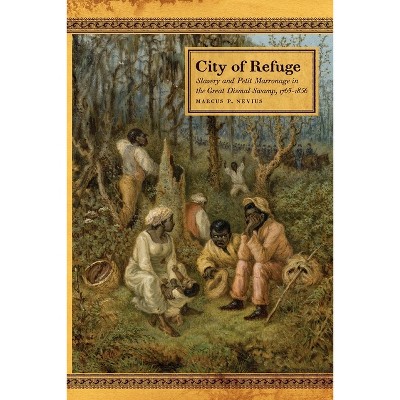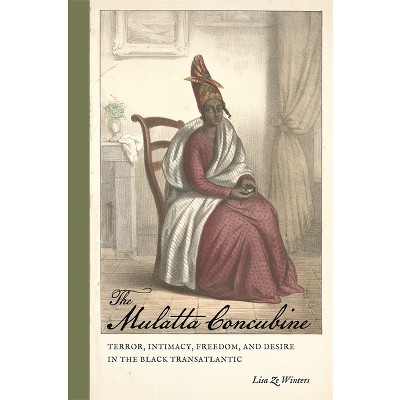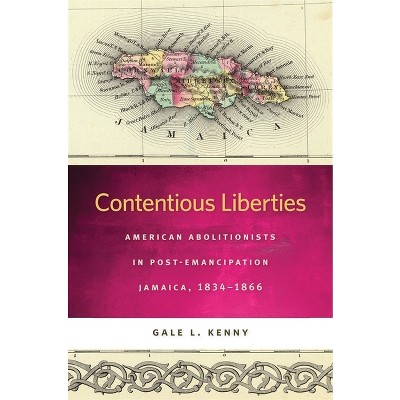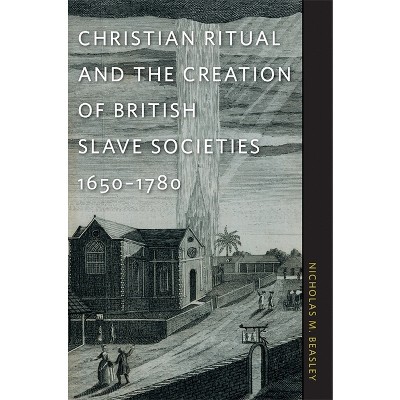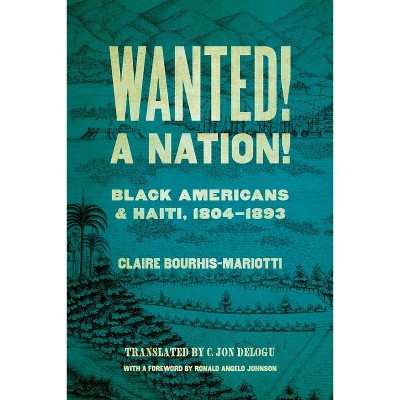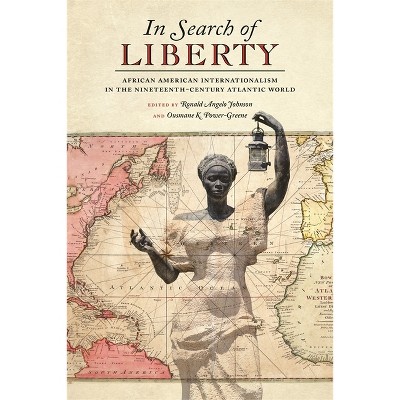The Horrible Gift of Freedom - (Race in the Atlantic World, 1700-1900) by Marcus Wood (Paperback)

About this item
Highlights
- In his tour de force Blind Memory, Marcus Wood read the visual archive of slavery in eighteenth- and nineteenth-century America and Britain with a closeness and rigor that until then had been applied only to the written texts of that epoch.
- About the Author: Marcus Wood is professor of English at the University of Sussex and author of several books, including "Blind Memory: Visual Representations of Slavery in England and America," winner of the best book prize given by the Society for Historians of the Early American Republic.
- 516 Pages
- Social Science, Slavery
- Series Name: Race in the Atlantic World, 1700-1900
Description
About the Book
By taking a new look at the role of the visual arts in promoting the "great emancipation swindle," Wood brings into the open the manner in which the slave power and its inheritors have single-mindedly focused on celebratory cultural myths that function to diminish both white culpability and black outrage.Book Synopsis
In his tour de force Blind Memory, Marcus Wood read the visual archive of slavery in eighteenth- and nineteenth-century America and Britain with a closeness and rigor that until then had been applied only to the written texts of that epoch. Blind Memory changed the way we look at everything from a Turner seascape to a crude woodcut in a runaway slave advertisement. The Horrible Gift of Freedom brings the same degree of rigor to an analysis of the visual culture of Atlantic emancipation.
Wood takes a troubled and troubling look at the iconography inspired by the abolition of slavery across the Atlantic diaspora. Why, he asks, did imagery showing the very instant of the birth of black slave freedom invariably personify Liberty as a white woman? Where did the image of the enchained kneeling slave, ubiquitous in abolitionist visual culture on both sides of the Atlantic, come from? And, most important, why was freedom invariably depicted as a gift from white people to black people? In order to assess what the inheritance of emancipation imagery means now and to speculate about where it may travel in the future, Wood spends the latter parts of this book looking at the 2007 bicentenary of the 1807 Slave Trade Abolition Act. In this context a provocative range of material is analyzed including commemorative postage stamps, museum exhibits, street performances, religious ceremonies, political protests, and popular film. By taking a new look at the role of the visual arts in promoting the "great emancipation swindle," Wood brings into the open the manner in which the slave power and its inheritors have single-mindedly focused on celebratory cultural myths that function to diminish both white culpability and black outrage. This book demands that the living lies developed around the memory of the emancipation moment in Europe and America need to be not only reassessed but demolished.Review Quotes
Marcus Wood is the most distinctive voice talking about slavery in English. In The Horrible Gift of Freedom, he combines intellectual mastery of diverse (and interdisciplinary) works with a remarkable assertiveness of style. The result is a book you won't be able to ignore.
--James Walvin "author of The Trader, the Owner, the Slave: Parallel Lives in the Age of Slavery"Marcus Wood, the preeminent scholar of the iconography of slavery, has written a brilliant successor to his pathbreaking book Blind Memory. The Horrible Gift of Freedom is a necessary, vital book. Indeed, it should be required reading for anyone interested in the meanings and legacies of slavery and freedom. The prose is elegant, the analyses always penetrating and often provocative; and the result is that Wood has transformed common understandings of emancipation, highlighting the limits of freedom and offering a sober meditation on its legacy in the twenty-first century.
--John Stauffer "author of Giants: The Parallel Lives of Frederick Douglass and Abraham Lincoln"With The Horrible Gift of Freedom, Marcus Wood deploys his characteristic rigor, creativity, and verve in the service of a near complete dismantling of abolitionist self-satisfaction. The cultural artifacts produced to celebrate abolition, both then and now, never have received more searching inquiry.
--Christopher L. Brown "author of Moral Capital: Foundations of British Abolitionism"Wood has meticulously deconstructed the devastating myth that freedom was a gift generously conferred to Africans. His book is a witty, gripping, sophisticated analysis of the racism and self-congratulation that centuries ago built narrative and pictorial falsehoods of staggering proportions; a deception, as he aptly demonstrates, still going on in the twenty-first century.
--Sylviane A. Diouf "author of Dreams of Africa in Alabama: The Slave Ship Clotilda and the Story of the Last Africans Brought to America"A haunting tour de force, Marcus Wood's recent book The Horrible Gift of Freedom offers a provocative and challenging examination of dominant sites and sights of memory and representation vis-à-vis Atlantic slavery.
--Journal of American StudiesDeftly merges socially engaged scholarship with sardonic cultural criticism . . . The book succeeds powerfully, where others have not, in revealing and explaining the enduring influence of nineteenth-century emancipation iconography in British and American popular culture.
--Journal of American HistoryIn this highly original study, Wood offers no easy answers; his scrutiny of popular and artistic imagery shows us clearly how abolition, slavery, and collective memory collide. As long as we, former slave-trading cultures, celebrate abolition in order to forget slavery, the past will continue to haunt us.
--Chronicle of Higher EducationWood's analysis of popular 19th-century iconography is thorough, sharp, and disillusioning . . . Richly illustrated and a pleasure to read.
--ChoiceAbout the Author
Marcus Wood is professor of English at the University of Sussex and author of several books, including "Blind Memory: Visual Representations of Slavery in England and America," winner of the best book prize given by the Society for Historians of the Early American Republic. He also has a successful career as a painter, performance artist, and filmmaker, producing political work in the visual arts focused on questions of diaspora and racism.





